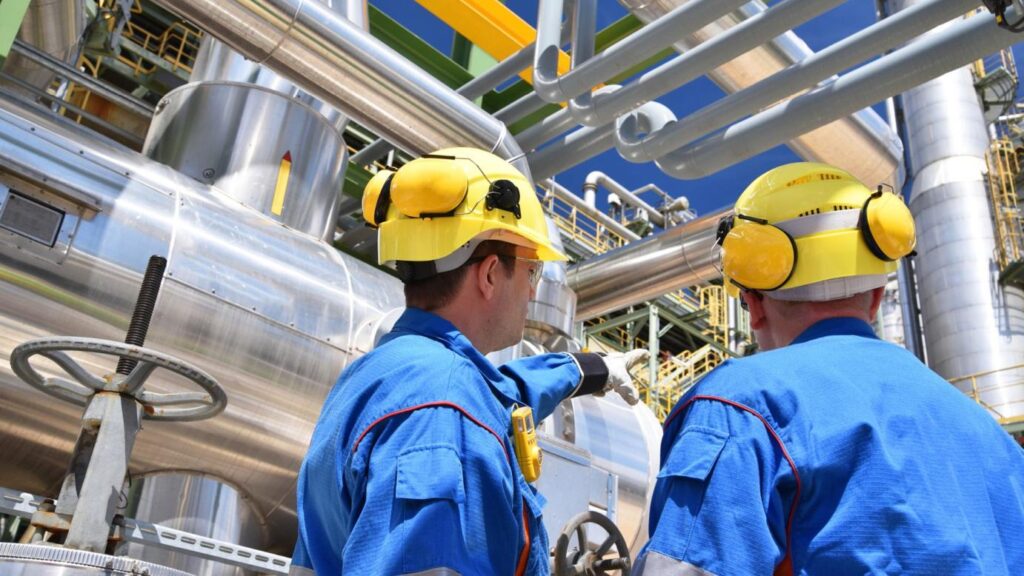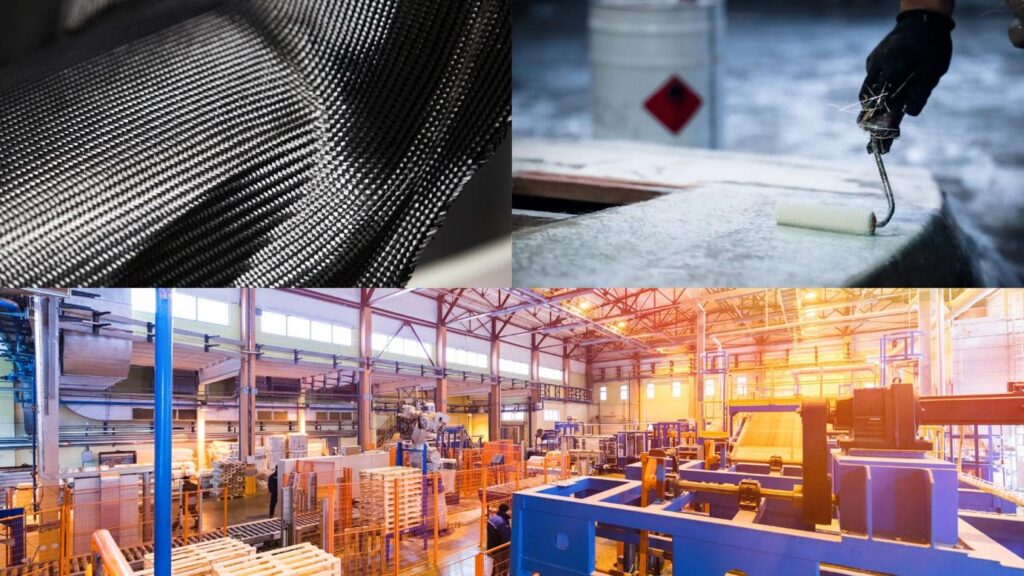
Composite materials have become an integral part of the oil and gas industry, revolutionizing operations and improving efficiency and safety. These advanced materials, made from a combination of two or more distinct components, offer numerous advantages over traditional materials such as steel and concrete. In this article, we will explore the various applications of composite materials in the oil and gas industry and how they have transformed the landscape of this vital sector.
Composite Materials in Oil and Gas Industry: Enhancing Exploration
Subsea Applications: Overcoming Harsh Environments
In the challenging subsea environment, composite materials play a crucial role in the construction of equipment and structures. Subsea pipelines and risers made from composites offer exceptional resistance to corrosion, reducing maintenance requirements and extending the lifespan of these critical components. The lightweight nature of composites also enables easier installation and transportation, contributing to cost savings during offshore operations.
Drilling Equipment: Durability and Performance
Composite materials find extensive use in drilling equipment due to their exceptional durability and performance. Drill pipes and casings made from composites exhibit high strength-to-weight ratios, allowing for deeper and more efficient drilling. Moreover, these materials offer excellent resistance to harsh drilling fluids and chemicals, minimizing the risk of equipment failure and ensuring safer drilling operations.
Offshore Platforms: Structural Integrity and Weight Reduction
Traditional offshore platforms constructed using steel require significant maintenance and are susceptible to corrosion and fatigue. Composite materials offer a viable alternative by providing enhanced structural integrity and significant weight reduction. Composite platforms are not only more resistant to corrosion but also demonstrate superior fatigue resistance, resulting in longer service life and reduced operational downtime.
Composite Materials in Oil and Gas Industry: Strengthening Production
Pipelines: Improved Flow and Leak Prevention
Transporting oil and gas through pipelines is a critical aspect of the industry. Composite materials have revolutionized this process by enhancing flow rates and minimizing leakage risks. Composite pipeline linings reduce friction, ensuring a smoother flow and increased efficiency. Additionally, these linings offer excellent resistance to chemical attacks and abrasion, significantly reducing the likelihood of leaks and spills.
Storage Tanks: Corrosion Resistance and Environmental Safety
Storage tanks are susceptible to corrosion and leakage, posing serious risks to the environment and human safety. Composite materials provide a reliable solution by offering exceptional resistance to corrosion, ensuring the integrity of storage tanks over their lifetime. Furthermore, composites can be designed to prevent permeation, reducing the potential for environmental contamination.
Refineries: Heat Resistance and Energy Efficiency
The demanding conditions within refineries require materials that can withstand high temperatures and harsh chemicals. Composite materials excel in this aspect, providing excellent heat resistance and chemical stability. Moreover, composites enable the design of more efficient heat exchangers and process equipment, contributing to energy savings and improved overall refinery performance.
Composite Materials in Oil and Gas Industry: Enhancing Safety
Personal Protective Equipment (PPE): Lightweight and High Protection
Ensuring the safety of workers in the oil and gas industry is of paramount importance. Composite materials have revolutionized the design and manufacturing of personal protective equipment (PPE), offering lightweight solutions with enhanced protection. Composite helmets, gloves, and body armor provide excellent impact resistance, reducing the risk of injuries and improving the overall safety of workers in hazardous environments.
Fire Safety: Non-Combustible Materials
The threat of fire in the oil and gas industry necessitates the use of non-combustible materials. Composite materials with fire-retardant properties have been developed to address this concern. These materials do not propagate flames, emit toxic gases, or produce excessive smoke, significantly improving the fire safety standards in oil and gas facilities.
Electrical Insulation: Preventing Accidents
Electrical systems play a vital role in oil and gas operations, but they also pose a significant safety risk if not adequately protected. Composite materials with excellent electrical insulation properties offer a reliable solution for preventing accidents caused by electrical faults. These materials provide insulation against high voltages and reduce the risk of electrical malfunctions, ensuring the safety of personnel and equipment.
FAQs (Frequently Asked Questions)
Q: What are the primary benefits of using composite materials in the oil and gas industry?
Composite materials offer numerous advantages, including high strength-to-weight ratios, corrosion resistance, durability, enhanced safety, and improved operational efficiency.
A: How do composite materials enhance safety in the oil and gas industry?
Composite materials improve safety by providing lightweight personal protective equipment, fire-retardant solutions, and excellent electrical insulation properties.
Q: Are composite materials cost-effective for the oil and gas industry?
Composite materials in Oil and Gas industry may have higher upfront costs than traditional materials, but they offer long-term cost savings due to reduced maintenance requirements, extended lifespan, and improved operational efficiency.
A: Can composite materials withstand harsh environments?
Yes, composite materials are designed to withstand harsh environments, including corrosive subsea conditions, high temperatures, and chemical exposures.
Q: Are there any limitations or challenges associated with using composite materials in the oil and gas industry?
While composite materials offer numerous benefits, challenges such as material compatibility, manufacturing complexity, and quality control must be carefully addressed to ensure their successful implementation.
A: What is the future outlook for composite materials in the oil and gas industry?
The future looks promising for composite materials in the oil and gas industry, with ongoing research and development focusing on further improving their properties and expanding their applications.
Composite materials have undoubtedly transformed the oil and gas industry, enabling enhanced exploration, strengthening production processes, and improving overall safety standards. From subsea applications to refineries and personal protective equipment, these materials have revolutionized traditional practices, leading to increased efficiency, reduced environmental impact, and improved worker safety. As technology continues to advance, composite materials will play an increasingly vital role in shaping the future of the oil and gas industry.










